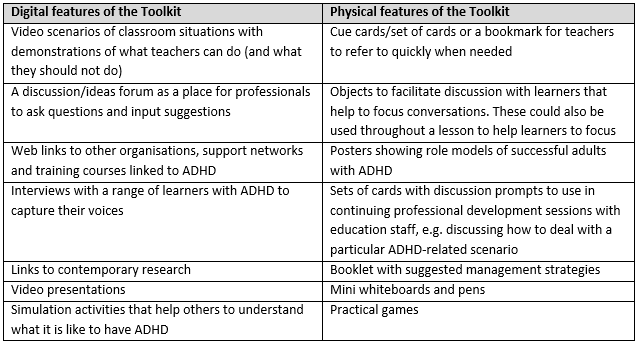 By Dr. Simon Brownhill and Dr. Frances Knight, University of Bristol School of Education
By Dr. Simon Brownhill and Dr. Frances Knight, University of Bristol School of Education
A recent report (Moore et al., 2019) placed improving behaviour in schools as a central priority for education contexts. For young people with ADHD [Attention Deficit Hyperactivity Disorder], the classroom can be a particularly challenging environment for them as they are often more inattentive (Kofler et al., 2008), and display more off-task (Imeraj et al., 2013) and disruptive behaviours (O’Regan, 2018).
As such, young people with ADHD require more support from educators in the classroom, but this is typically hindered by a limited teacher knowledge of ADHD (Kendall, 2016) and of evidence-based ADHD-specific interventions, both in the UK (Moore et al., 2016) and internationally (Arcia et al., 2000). In a review of UK teachers’ own perspectives, Moore et al. (2017) recognise the importance of informed pupil-teacher interactions, and the need for evidence-based interventions to effectively assist educators in their daily practice in the classroom.
In light of the above, Dr. Simon Brownhill and Dr. Frances Knight at the University of Bristol School of Education have recently undertaken an exciting exploratory project which set out to establish the extent to which there is a need for an ADHD Teacher Toolkit for the classroom (March-July 2020). Funded by an award from the Economic and Social Research Council Impact Acceleration Account 2019-23, the project built on research by Knight and Brownhill (2019) which explored professionals’ experiences of ADHD behaviours in the classroom (Knight et al., in prep) and identified both unsuccessful and successful behaviour management strategies to best support young people in reaching their potential (Brownhill et al., in prep).
This research revealed a distinct lack of ADHD-specific training for professionals, meaning that they found themselves unprepared to manage challenging ADHD behaviours and so had to ‘learn by osmosis’ in the classroom context. The need for an effective and evidence-based ADHD Teacher Toolkit emerged from this research. It was felt that the success of a Toolkit would only be achievable with the inclusion of experienced insights from a suite of professionals and people who were active in their support of young people with ADHD. As such, the following key stakeholders were involved in six interactive online workshops (one hour each) which were used to formulate the content, features and strategies that an ADHD Teacher Toolkit should contain:
- those at a classroom level – class teachers, teaching assistants and Special Educational Needs Co-ordinators (11 participants),
- those at an operational level – Educational Psychologists (4 participants),
- those at a strategic level – Headteachers, members of the Senior Leadership Team, and Heads of Department (6 participants),
- those who are experts in their child’s needs – parents/carers (2 participants), and
- those for whom ADHD directly impacts on a personal level – young people with ADHD (4 participants).
This rich and varied range of perspectives has helped to develop an underlying philosophy for the proposed ADHD Teacher Toolkit, as well as generating a suite of potential content in different formats that will ultimately help to shape an effective and usable classroom intervention which embraces an integrated, whole-school approach. Practical suggestions include:
A rigorous analysis of the data generated from this project, initiated by Jennifer Norris (Research Assistant), yielded a number of important conclusions and recommendations which are offered below in the form of ‘Key Takeaways’:
Looking ahead, Dr. Knight and Dr. Brownhill intend to use the findings from this project as a solid grounding for a large Nuffield Foundation Research Grant which would fund the physical development of an effective, evidence-based ADHD Teacher Toolkit (2021-24).


